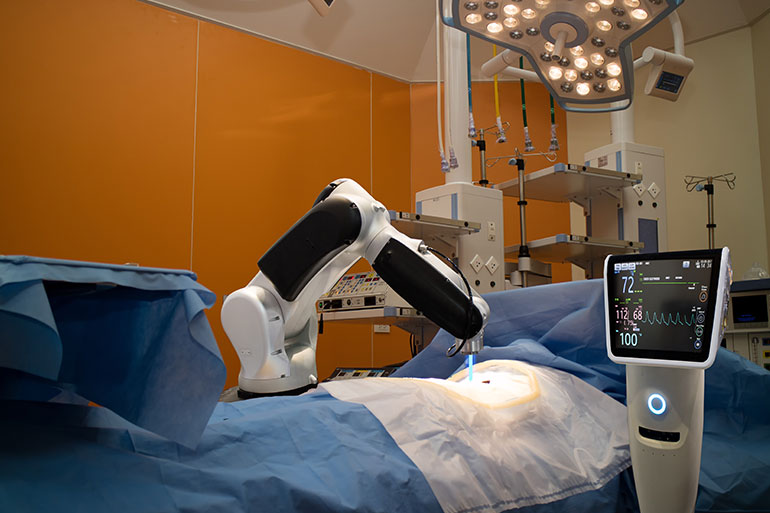
.* AI Breakthroughs Enhance Medical Diagnostics and Treatment.* AI Breakthroughs Enhance Medical Diagnostics and Treatment Artificial Intelligence (AI) has emerged as a revolutionary force in the healthcare industry, transforming medical diagnostics and treatment through its unparalleled capabilities. With its ability to analyze vast amounts of data, learn from complex patterns, and make accurate predictions, AI is revolutionizing the diagnosis and care of patients. Accurate and Timely Diagnosis: AI algorithms can identify subtle patterns in medical images that may be invisible to the human eye. This enables healthcare professionals to detect diseases earlier, allowing for timely intervention and improved patient outcomes. For example, AI-powered X-ray analysis can assist in diagnosing pneumonia with greater accuracy, leading to a reduction in diagnostic errors. Personalized Treatment Plans: AI is transforming personalized medicine by tailoring treatment plans based on a patient’s individual health profile. By analyzing genetic data, patient history, lifestyle factors, and environmental influences, AI can help clinicians predict the likelihood of disease development and optimize treatment strategies. This precision approach leads to more effective therapies and better patient outcomes. Remote Patient Monitoring: AI-enabled devices and wearable sensors are revolutionizing remote patient monitoring. They collect real-time health data, such as heart rate, blood sugar levels, and activity levels, which can be analyzed by AI algorithms to identify potential health issues. Early detection and proactive monitoring improve health management and reduce the risk of complications. Drug Discovery and Development: AI is accelerating the drug discovery and development process. By simulating molecular interactions and predicting the efficacy of potential drug candidates, AI can identify promising compounds more efficiently. This reduces the time and cost associated with traditional drug development, leading to faster delivery of new treatments to patients. Surgical Precision: AI-powered surgical robots provide surgeons with enhanced precision and control. They assist in complex procedures, such as minimally invasive surgeries, by providing surgeons with real-time guidance and reducing the risk of complications. This advancements in surgical technology improve patient outcomes and recovery times. Challenges and the Future: While AI offers immense potential in medical diagnostics and treatment, it also presents some challenges. Data privacy, ethical considerations, and the need for skilled professionals in AI healthcare are important issues that require careful attention. However, the future of AI in healthcare is incredibly promising. Continued advancements in AI algorithms, data analytics, and machine learning will drive even greater breakthroughs, further transforming medical diagnostics, treatment, and patient care. AI has the potential to revolutionize healthcare by improving accuracy, efficiency, and personalization, ultimately leading to better health outcomes for all.
Posted inNews